
For 140 years, gold mines in Johannesburg have been leaking wastewater contaminated with heavy metals. The acid mine drainage from Johannesburg’s estimated 278 abandoned mines and 200 mine dumps includes uranium (a radioactive metal), toxic arsenic, copper, cobalt, nickel, lead and zinc. Acid mine drainage can pollute land and water sources up to 20km away from a mine unless it is remediated by mining companies. The contamination cascades through food webs and poisons river water, plants and animals.
Before 1994 in South Africa, African communities were forcibly relocated to places near mine dumps in Soweto, south-west of Johannesburg. Today, Soweto is home to 1,9 million people who are exposed to acid mine drainage.
Fellow environmental scientists Salerwe Mosebi, Khayalethu Ntushelo and I researched how acid mine drainage affects urban agriculture in Soweto. Residents of the area rely on their small vegetable gardens to supplement their income and help meet their nutritional needs.
Our research found that acid mine drainage has contaminated the streams, irrigation water sources and subsequently, the soil on the land adjacent to the Klip River, which flows south and west of Soweto.
EXPOSURE TO HEAVY METALS
In very mild doses, exposure to heavy metals in acid mine drainage can cause dehydration and abdominal pain. In cases of serious exposure, birth defects, brain damage, cancer and miscarriages can result.
This story is from the Farmer's Weekly 14 June 2024 edition of Farmer's Weekly.
Start your 7-day Magzter GOLD free trial to access thousands of curated premium stories, and 9,000+ magazines and newspapers.
Already a subscriber ? Sign In
This story is from the Farmer's Weekly 14 June 2024 edition of Farmer's Weekly.
Start your 7-day Magzter GOLD free trial to access thousands of curated premium stories, and 9,000+ magazines and newspapers.
Already a subscriber? Sign In

Agripreneur wins top award for butternut coffee
Bloemfontein-based agripreneur Chantelle de Bruyn has achieved global recognition.
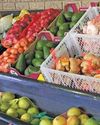
Final fresh produce inquiry pins low level of transformation on farming environment
The Competition Commission released its final report on the Fresh Produce Market Inquiry in mid-January, maintaining that transformation in the industry was being impeded by a lack of support for emerging farmers.

Illegal fishing in Australia reveals market gap for farmed sea cucumber
Illegal fishing practices in Australia have revealed a large market opportunity for sea cucumber farming.

An introduction to the Ford Ranger Tremor
In December 2024, the CAR magazine team received the Ford Ranger Tremor to accompany them through the festive season and into the new year. Oliver Keohane looks at what the Tremor is all about.

A farmer's experience with bush encroachment
Farmer David Addenbrooke has worked in the Zimbabwean beef industry for around four decades. Here, he relates his experience with bush encroachment and offers farmers some advice on battling this scourge.
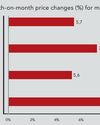
Good rains boost SA's summer grain crop prospects
This week, Absa AgriBusiness analyses several market dynamics and shares its expectations for local grain and oilseed prices over the coming months.
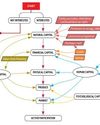
A self-help tool for getting young people engaged in agriculture
The active engagement of the youth in agriculture is pivotal to the sustainability and growth of the sector. Empowering them with the necessary support is key to nurturing future farmers who are equipped to overcome future challenges like the effects of climate change.Dr Primrose Madende, researcher at the Department of Agricultural Economics at the University of the Free State
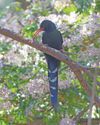
Rallying to the cackle of this raucous bird
The gregarious and territorial Green Wood-hoopoe, also known as the Red-billed Wood-hoopoe, is extremely vocal and is often heard before it is seen. And for very good reason,

SA coffee lovers can expect price increase
South African coffee prices are expected to spike sharply in the foreseeable future because of failed crops in the country’s main importing countries: Brazil and Vietnam.
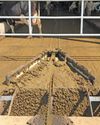
Paving the way for a greener dairy industry
The dairy industry is often criticised for its environmental impact, but a new innovation called DESTiny aims to empower farmers to take control of their carbon footprints. Riana Reinecke, the tool's developer, explained to Glenneis Kriel how it works and how farmers can benefit from it.